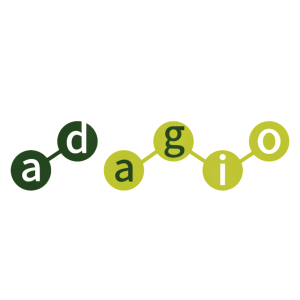Invivyd Announces New Pipeline Discovery Program Focused on Monoclonal Antibody Treatment for Measles
Rhea-AI Summary
Positive
- Development of first-in-class measles treatment addressing an unmet medical need
- Large potential market with over 20 million unvaccinated Americans
- Expansion of pipeline beyond COVID-19, RSV, and influenza programs
- Potential for both treatment and prophylaxis applications
Negative
- Program is still in early discovery phase with no guaranteed success
- Timeline for development and potential approval remains uncertain
- Will require significant R&D investment with no immediate revenue potential
News Market Reaction
On the day this news was published, IVVD gained 29.67%, reflecting a significant positive market reaction.
Data tracked by StockTitan Argus on the day of publication.
- Multiple HCPs have requested from Invivyd a monoclonal antibody (mAb) for treatment of active measles infection and post-exposure prophylaxis to reduce the consequence of outbreaks. Such a medicine could accelerate the pathway to functional eradication of measles
- Measles (rubeola) virus appears to offer an attractive target for best-in-class monoclonal antibody discovery and development utilizing Invivyd technology
- More than 20 million Americans are unvaccinated against measles; U.S. is at risk for losing functional elimination as vaccination rates decline
- Goal is to identify a preclinical measles mAb candidate in 2025; company anticipates providing a progress update by end of year
WALTHAM, Mass., May 12, 2025 (GLOBE NEWSWIRE) -- Invivyd, Inc. (Nasdaq: IVVD) today announced it has initiated a discovery program for a measles monoclonal antibody (mAb). Multiple healthcare providers (HCPs) who are treating active measles and monitoring contacts and outbreaks have inquired directly to Invivyd about the possibility of accessing such a medicine, as there are no currently approved therapies for measles or for post-exposure prophylaxis. Measles monoclonal neutralizing antibody discovery efforts would join current Invivyd discovery programs for next-generation COVID-19, respiratory syncytial virus (RSV), and influenza mAbs designed to treat acute infection or provide a high-quality alternative to vaccination.
There are currently no anti-viral treatments for measles. Clinicians have limited options for treatment of individuals sick with measles including high-dose Vitamin A, which is useful to support recovery from measles infections among children who are Vitamin A deficient, and human donor-derived pooled plasma immune globulin (IG) administered via IV (IVIG) to treat active phase measles. Both therapies have limitations for treatment, in addition to not being approved, well-characterized clinical tools: Vitamin A can be hepatotoxic, and IVIG is a non-uniform, polyclonal collection of antibodies collected and pooled from many donors and is poorly suited for widespread use.
Standard measles vaccines confer excellent, long-lasting protection from disease and are the most important tools to prevent measles infection but have important limitations in post-exposure prophylaxis and are increasingly underutilized by sizeable populations in America due to restricted healthcare access or religious or personal views on the use of vaccines in general. Recent research published in the Journal of the American Medical Association (JAMA) estimates the potential health effects of declining vaccine uptake and highlights the enormous health consequences to Americans associated with the reestablishment of previously eradicated pathogens such as measles.
Acute measles infection involves clinical features of varying severity, including fevers, pneumonia, encephalitis, and high-risk of secondary bacterial infections, with one in four infections leading to hospitalization and one in every 1,000 causing death. The virus deletes immunological memory, creating an immunological amnesia that enhances risk of disease against all infections for years. One in a few thousand cases will cause a
“Despite effective vaccines, measles outbreaks are increasing globally, including in the U.S. where our elimination status is at risk. With over 20 million unvaccinated Americans in the U.S., and hundreds of millions globally, the burden of measles is high and poised to get worse. There is a huge need for effective treatments,” commented Dr. Michael Mina, MD, PhD, an infectious disease and vaccination expert, previously Professor of Epidemiology and Immunology at Harvard University School of Public Health. “A monoclonal antibody is a particularly attractive therapeutic option for many reasons: antibodies against measles can be highly neutralizing and thus able to rapidly stop infection; they can avoid toxicities and drug-drug interactions that accompany small molecule approaches; and, finally, monoclonal antibodies can serve as a critical prophylaxis tool for at-risk populations. In addition to treating acute infection, pre- and post-exposure prophylaxis may be especially important for children too young to be vaccinated, the immune compromised who cannot be vaccinated, and the elderly, whose immune protection may have waned, and as prophylaxis for people who are otherwise unvaccinated during measles outbreaks.”
“A measles monoclonal antibody may be an increasingly important therapeutic option in the coming years. Invivyd’s core strategy is to use best-in-class pharmaceutical monoclonal antibodies to lower the burden of viral infectious diseases,” commented Marc Elia, Chairman of the Invivyd Board of Directors. “Measles (rubeola) is an important potential therapeutic target and an excellent fit with our integrated capabilities in antibody discovery, development, and commercialization. Our goal is to discover and develop a safe, convenient, highly effective mAb against measles with a best-in-class profile that can be easily adopted in contemporary clinical practice. We will look forward to updating on our progress later this year.”
About Invivyd
Invivyd, Inc. (Nasdaq: IVVD) is a biopharmaceutical company devoted to delivering protection from serious viral infectious diseases, beginning with SARS-CoV-2. Invivyd deploys a proprietary integrated technology platform unique in the industry designed to assess, monitor, develop, and adapt to create best in class antibodies. In March 2024, Invivyd received emergency use authorization (EUA) from the U.S. FDA for a monoclonal antibody (mAb) in its pipeline of innovative antibody candidates. Visit https://invivyd.com/ to learn more.
Cautionary Note Regarding Forward-Looking Statements
This press release contains forward-looking statements within the meaning of the Private Securities Litigation Reform Act of 1995. Words such as “anticipates,” “believes,” “could,” “expects,” “estimates,” “intends,” “potential,” “predicts,” “projects,” and “future” or similar expressions (as well as other words or expressions referencing future events, conditions or circumstances) are intended to identify forward-looking statements. Forward-looking statements include statements concerning, among other things, the company’s discovery programs; the company’s goal to identify a preclinical monoclonal antibody candidate targeting measles, and the timing thereof; beliefs about the limitations of existing measles vaccines and therapies, the potential health effects of declining measles vaccine uptake, and the need for effective measles treatments; expectations regarding the potential benefits of a measles monoclonal antibody; Invivyd’s strategy to use best-in-class pharmaceutical monoclonal antibodies to lower the burden of viral infectious diseases, and its goal to discover and develop a safe, convenient, highly effective, monoclonal antibody against measles with a best-in-class profile that can be easily adopted in contemporary clinical practice; the company’s devotion to delivering protection from serious viral infectious diseases; and other statements that are not historical fact. The company may not actually achieve the plans, intentions or expectations disclosed in the company’s forward-looking statements and you should not place undue reliance on the company’s forward-looking statements. These forward-looking statements involve risks and uncertainties that could cause the company’s actual results to differ materially from the results described in or implied by the forward-looking statements, including, without limitation: the timing, progress and results of the company’s discovery, preclinical and clinical development activities; whether the company’s discovery efforts will result in a preclinical monoclonal antibody candidate targeting measles, and the timing thereof, and whether or not any preclinical candidate identified is determined to be suitable for clinical development; the risk that results of nonclinical studies or clinical trials may not be predictive of future results, and interim data are subject to further analysis; the predictability of clinical success of the company’s product candidates based on neutralizing activity in nonclinical studies; potential variability in neutralizing activity of product candidates tested in different assays, such as pseudovirus assays and authentic assays; the company’s reliance on third parties with respect to virus assay creation and product candidate testing and with respect to its clinical trials; uncertainties related to the regulatory authorization or approval process, and available development and regulatory pathways for authorization or approval of the company’s product candidates; changes in the regulatory environment; changes in expected or existing competition; the complexities of manufacturing monoclonal antibodies; whether Invivyd is able to use best-in-class pharmaceutical monoclonal antibodies to lower the burden of viral infectious diseases; macroeconomic and political uncertainties; the company’s ability to continue as a going concern; and whether the company has adequate funding to meet future operating expenses and capital expenditure requirements. Other factors that may cause the company’s actual results to differ materially from those expressed or implied in the forward-looking statements in this press release are described under the heading “Risk Factors” in the company’s Annual Report on Form 10-K for the year ended December 31, 2024, as filed with the Securities and Exchange Commission (SEC), and in the company’s other filings with the SEC, and in its future reports to be filed with the SEC and available at www.sec.gov. Forward-looking statements contained in this press release are made as of this date, and Invivyd undertakes no duty to update such information whether as a result of new information, future events or otherwise, except as required under applicable law.
This press release contains hyperlinks to information that is not deemed to be incorporated by reference in this press release.
Contacts:
Media Relations
(781) 208-1747
media@invivyd.com
Investor Relations
(781) 208-1747
investors@invivyd.com








